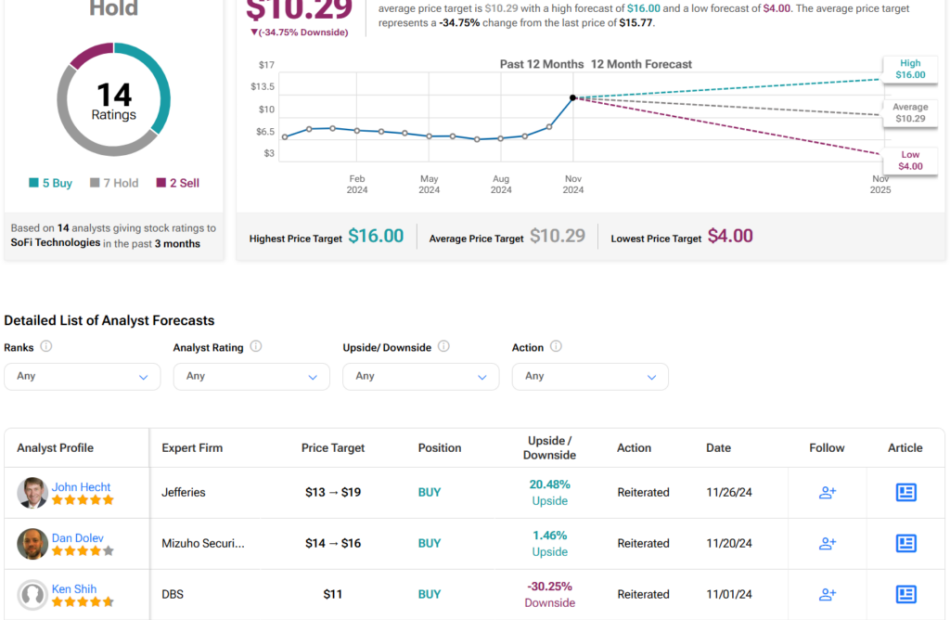SOFI Stock’s Sky High Valuation Can’t be Justified by Exciting Growth
SoFi Technologies (SOFI) is a lending technology platform and consumer financial stock that has vastly outperformed the wider financial sector over the past 12 months. However, despite impressive growth expectations, I’m bearish on this Californian company. The stock’s valuation is simply too high, and the high price paid for expected growth introduces too much execution risk. It has also benefitted from the macroeconomic environment and strong sentiment, which could change.
Front and center of my bear case is SoFi Technologies’ sky-high valuation. The company’s price-to-earnings (P/E) ratios are alarmingly high compared to sector medians, indicating potentially overvalued conditions. Currently, SoFi’s non-GAAP P/E (TTM) ratio of 114.4x is 733.4% higher than the sector median of 13.7x. Even more concerning is the forward P/E ratio of 134.6x, which is 890% above the sector median.
These figures suggest that investors are paying a substantial premium for SoFi’s future earnings potential and this introduces considerable execution risk. The GAAP P/E ratios tell a similar story. The TTM P/E of 132.5x and forward P/E at 119.5x are both significantly higher than sector medians. These valuations imply extremely high growth expectations that may be challenging to meet. Looking at estimated P/E ratios for the coming years, we see a strong decrease from 119.4x in 2024 to 25.3x in 2027.
Earnings growth is expected to average 60% over these years, which is impressive but infers a price-to-earnings-to-growth (PEG) ratio of 1.99. That’s considerably above the sector average of 1.45. Moreover, SoFi doesn’t pay a dividend, unlike many peers in the financials sector, making that PEG ratio look even more expensive. Such lofty valuations leave little room for error and make SoFi vulnerable to market corrections if the company fails to meet these high growth expectations.
I’m also bearish because I believe SoFi’s valuation has developed due to a very risk-on environment, which has contributed to a 121% surge over the past 12 months. The U.S. market has delivered one of the strongest years in living memory, with Donald Trump’s re-election providing additional support. The stock’s success has been driven by record revenue and member growth, partially due to the high interest rate environment and the resumption of student loan payments.




Leave a Reply